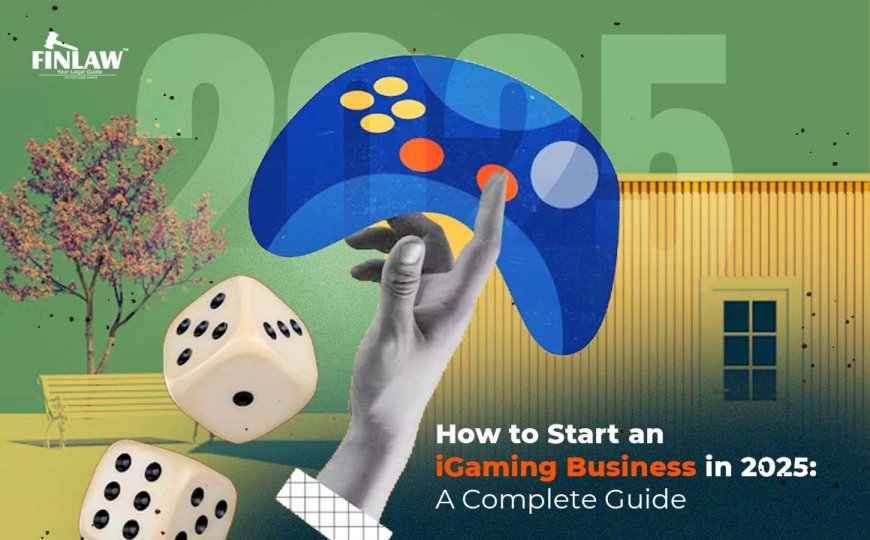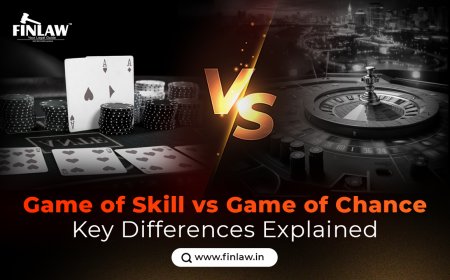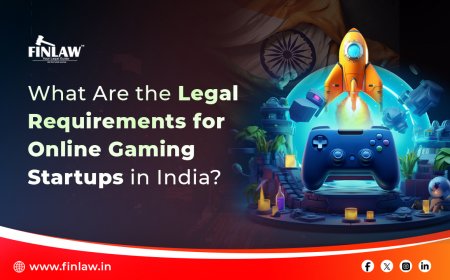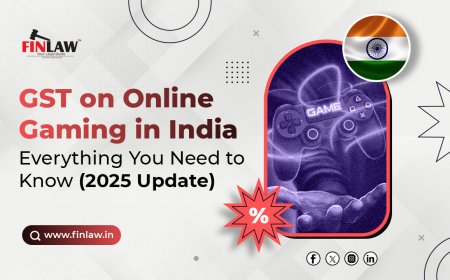How to Start an iGaming Business in 2025: A Complete Guide
Start an iGaming business in India in 2025 with our complete guide—legal steps, licenses, tech, costs & marketing tips for success.

India’s digital gaming landscape has seen explosive growth over the past few years. With millions of active players and an increasingly mobile-first population, the opportunity to start an iGaming business in 2025 is more promising than ever. However, launching a legal, scalable, and profitable venture in this space requires deep understanding of regulations, technology, consumer trends, and operational frameworks.
This guide breaks down everything you need to know about starting an iGaming business in India—from licensing and legal requirements to platform development and marketing strategies.
What is an iGaming Business?
The term iGaming generally refers to internet-based betting or gambling activities, including online casinos, sports betting, fantasy sports, poker, lotteries, and even skill-based games with real-money rewards. An iGaming business can operate across multiple formats and monetization models, such as:
-
Real-money gaming (RMG)
-
Freemium games with in-app purchases
-
Subscription-based models
-
Ad-supported gaming platforms
Why Start an iGaming Business in India in 2025?
1. Market Growth
The Indian gaming market is projected to reach USD 8.6 billion by 2027, with iGaming making up a significant share. Fantasy sports, card games, and skill-based betting platforms are particularly popular among younger demographics.
2. Smartphone Penetration
India now has over 700 million smartphone users, and tier-II and tier-III cities are showing increasing digital participation. This democratizes access to online gaming platforms.
3. Regulatory Evolution
Although the legal framework is still evolving, 2023–2025 has seen positive developments in state and central regulation, with several states permitting online skill-based gaming under a license.
Step-by-Step Guide to Start an iGaming Business in 2025
Step 1: Choose Your iGaming Niche
Identifying your niche is the first crucial step. Some profitable niches include:
-
Fantasy Sports (e.g., cricket, kabaddi, football)
-
Online Rummy and Poker
-
Sports Betting (legal in limited states)
-
Esports Betting
-
Casino-style Games (slots, blackjack—if operating internationally)
Pro Tip: Skill-based games are legally safer to operate in India compared to games of chance.
Step 2: Understand the Legal Framework
India does not have a unified law governing online gaming. The regulation is state-specific. Here’s what you should know:
Key Legal Highlights:
-
Public Gambling Act, 1867: Prohibits operating gambling houses, but doesn't cover online platforms.
-
Information Technology Act, 2000: Governs digital transactions and content but is silent on iGaming.
-
MeitY Guidelines 2023–2024: Proposed a self-regulatory framework for online gaming intermediaries.
-
State Laws: Telangana, Tamil Nadu, and Andhra Pradesh have stricter regulations banning real-money games. States like Sikkim, Goa, Nagaland allow regulated online betting/gaming.
Recommended Action:
-
Consult a legal expert for compliance.
-
Register under the appropriate legal category (private limited company, LLP, etc.).
-
Acquire iGaming licenses if operating in regulated states (e.g., Nagaland Gaming License).
Step 3: Register Your Business
To run an iGaming business in India, you must legally register your entity. Steps include:
-
Choose a Business Structure: Pvt Ltd Company is ideal for scalability.
-
Apply for GST Registration
-
Get a PAN & TAN
-
Open a Current Bank Account
-
Register with FIU-IND if dealing with real-money transactions
For overseas markets, you may consider incorporating in Malta, Curacao, Isle of Man, or the UAE (e.g., GCGRA) to obtain international iGaming licenses.
Step 4: Build a Secure and Scalable Platform
Your platform is the heart of your business. It should be:
-
Mobile-Optimized
-
Real-Time Data Capable
-
GDPR & Indian Data Protection Bill Compliant
-
Integrated with Secure Payment Gateways
-
AI/ML-Driven Anti-Fraud Features
Key components to develop:
-
User Registration & KYC Flow
-
Wallet Integration
-
Game Engine (custom or white-label)
-
Admin Dashboard & Analytics
-
Customer Support Tools (chatbot/live chat)
White-Label vs Custom Build: White-label solutions save time but may limit customization. Custom development offers flexibility but takes longer.
Step 5: Set Up Payment Infrastructure
To operate a real-money gaming platform, you’ll need:
-
UPI, Credit/Debit Card, and Wallet Integration
-
Payment Aggregators (e.g., Razorpay, Cashfree)
-
Withdrawal System (to process winnings)
-
AML & KYC Compliance Mechanisms
Work with payment partners who are comfortable onboarding iGaming businesses, as some traditional payment processors may restrict such activity.
Step 6: Get Licensed and Stay Compliant
To build user trust and avoid legal hurdles, licensing is critical. In India:
-
Skill-Based Games: Licenses from states like Nagaland (under Nagaland Prohibition of Gambling and Promotion and Regulation of Online Games of Skill Act).
-
Fantasy Sports: Register under self-regulatory bodies like the All India Gaming Federation (AIGF) or Federation of Indian Fantasy Sports (FIFS).
For international reach or targeting NRIs, explore global licenses such as:
-
Curacao eGaming License
-
Malta Gaming Authority (MGA) License
-
GCGRA License (UAE)
Step 7: Market Your iGaming Platform
Customer acquisition is fiercely competitive in the gaming industry. Use a multi-channel strategy:
Key Marketing Channels:
-
Influencer Marketing (streamers, gaming YouTubers)
-
SEO and Content Marketing (target keywords like "best fantasy app India")
-
Affiliate Programs (revenue-share or CPA model)
-
Google UAC and Meta Ads (if platform policy allows)
-
Push Notifications and Retargeting
Offer welcome bonuses, referral rewards, and loyalty programs to increase engagement and retention.
Compliance and Risk Management
Running an iGaming business requires ongoing vigilance:
-
KYC/AML Compliance: Mandatory for real-money gaming
-
Age Verification: Prevent underage users
-
Data Privacy: Ensure encrypted storage and transactions
-
Self-Exclusion Mechanism: Let users block themselves if needed
Regular audits and risk assessments are recommended.
Cost to Start an iGaming Business in India
|
Component |
Estimated Cost (INR) |
|
Legal & Licensing Fees |
₹5–10 lakhs/year |
|
Platform Development |
₹15–30 lakhs (custom build) |
|
White-label Solution |
₹10–15 lakhs/year |
|
Marketing & User Acquisition |
₹10–50 lakhs/year |
|
Payment Gateway & Compliance |
₹2–5 lakhs/year |
|
Operational & Staff Expenses |
₹5–15 lakhs/year |
Future Outlook of iGaming in India
With the Indian government actively shaping digital gaming regulations and increasing investor interest, the iGaming sector is poised for long-term growth. Emerging tech like blockchain, NFTs, and VR will add new layers to the iGaming experience in India by 2025 and beyond.
Final Thoughts
Starting an iGaming business in 2025 can be incredibly rewarding if approached strategically and compliantly. From choosing the right niche to ensuring legal clarity, platform readiness, and strong marketing, each step contributes to your long-term success.
If you're serious about tapping into India’s booming digital gaming economy, now is the time to act.
Frequently Asked Questions (FAQs)
Q1: Is iGaming legal in India?
iGaming legality in India depends on the state and the type of game. Skill-based games are allowed in many states, but games of chance (gambling) are prohibited in most.
Q2: What licenses do I need to start an iGaming platform?
You may require a state license (like Nagaland’s) or registration with industry bodies like AIGF/FIFS. For international operations, consider global licenses.
Q3: Can foreign investors invest in Indian iGaming startups?
Yes, but FDI is allowed only in non-gambling and skill-based platforms, subject to sectoral guidelines.
Q4: How much time does it take to launch?
It can take 3–6 months for legal registration, platform development, licensing, and launch, depending on your approach.
What's Your Reaction?



















